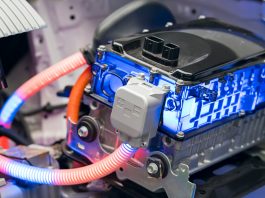Essam Elnagar, Data analyst at BPIE, a Digital Ambassador at EUSEW, and Mariangiola Fabbri, Head of Research at BPIE, discuss technological advancements that are helping to manage energy demand effectively.
In today’s world, the nexus between energy demand, building energy efficiency, and environmental sustainability is crucial.
As we navigate the complexities of climate change, finding resilient solutions to manage energy demand and enhance building performance is paramount.
This article explores how innovative technologies can drive sustainability, focusing on the pivotal role of resilient cooling systems in shaping a greener future.
Understanding energy demand and building energy performance
Energy demand and building energy performance are integral to achieving sustainability goals. As societies strive for greener futures, it is crucial to comprehend the dynamics of energy usage and how buildings contribute to overall consumption.
According to the International Energy Agency (IEA), current policy settings indicate significant changes in the energy landscape by 2030. Understanding energy demand is the cornerstone of developing effective strategies to mitigate climate and environmental impacts.
Innovations driving sustainable solutions
Innovation in resilient technologies holds the key to reducing energy consumption and environmental footprint. From smart building systems to renewable energy integration, advancements offer promising solutions for a greener future.
Horizon Europe’s work programme emphasises the importance of resilient and sustainable systems, highlighting the need for comprehensive approaches to tackle climate change. Exploring and implementing these innovations is vital for achieving long-term sustainability goals.
The nexus of climate change and energy demand
Climate change intensifies energy demand challenges, posing significant threats to environmental sustainability. As temperatures rise, the demand for cooling systems surges, leading to increased energy consumption and greenhouse gas emissions.
Understanding the interconnectedness between climate change and energy demand is essential for devising effective adaptation and mitigation strategies for both energy usage and the environmental impact of traditional cooling systems.
Resilient cooling systems for building sustainability
Resilient cooling systems are crucial for building sustainability. By integrating efficient cooling technologies, such as smart HVAC (Heating, Ventilation, and Air Conditioning) systems and passive cooling techniques, buildings can significantly reduce energy consumption while maintaining optimal indoor conditions.
As the demand for cooling systems rises with increasing temperatures, resilient cooling becomes increasingly critical in minimising energy usage and greenhouse gas emissions.
Building energy codes, adapted to include metrics for life cycle sustainability, play a vital role in promoting the adoption of resilient cooling systems.
Moreover, the EU targets a 49% renewable energy share in buildings by 2030, highlighting the need for sustainable cooling solutions.
Policy imperatives for advancing sustainable cooling technologies
Governments and policymakers should prioritise a holistic approach to building and renovation, including the adoption and incentivisation of resilient cooling technologies in building codes and regulations.
Creating an enabling framework to support the adoption of resilient cooling solutions is equally important. This involves fostering innovation and research, such as the initiatives led by the Kigali Cooling Efficiency Program (K-CEP), to accelerate the deployment of advanced cooling technologies.
Additionally, establishing support mechanisms, such as the Green Climate Fund can incentivise the implementation of resilient cooling solutions in both new construction and retrofitting projects through financial incentives and subsidies.
Moreover, training, reskilling and upskilling programmes are crucial to secure a qualified workforce. By providing financial support and creating favourable regulatory environments, governments can facilitate the widespread adoption of sustainable cooling technologies and contribute to achieving long-term sustainability goals.








